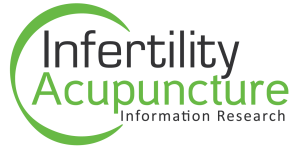Stress affects your fertility. We can’t ignore this fact any longer.
Furthermore, long-term stress can reduce your IVF success. UK scientists measured cortisol levels in women undergoing IVF. They took samples of hair and saliva. Hair sampling allows analysis of cortisol over the preceding 3–6 months. While saliva sample shows immediate stress levels. Results were eye-opening. Women exposed to chronic stress were 27% less likely to conceive with IVF.
How many acupuncture sessions do you need to have a significant impact on stress?
Is it realistic to think that a single acupuncture session can reduce the cumulative effects of stress that has happened over a longer period, say 3-6 months?
A recent study led by Dr Sutton explored this question. They compared a month of regular acupuncture with one session on the day of embryo transfer. Acupuncture on the day of embryo transfer is often recommended by reproductive endocrinologists.
To no surprise women who had several acupuncture sessions felt more relaxed. Unfortunately, researchers didn’t further explore if acupuncture dose has an impact on pregnancy rates.
This study shows that number of acupuncture sessions matters as far as IVF stress reduction is concerned.
It is quite common that stress leads to women quitting IVF too early. This is another important reason making this acupuncture study relevant. Psychological pressure is the number one reason why women stop ART treatments before achieving the dream of a baby.
If you’re trying naturally or with IVF, we recommend starting with acupuncture early. Reduced stress could be one of the mechanisms how acupuncture may improve your IVF success rates. It may help you to complete your family sooner.
A Comparison of Stress Levels in Women Undergoing Single Versus Multiple Acupuncture Session Prior to Embryo Transfer
C. Sutton, MD, S. Pentland, Dr. TCM, J. Roberts, MD
Background
Stress associated with the process of in vitro fertilization (IVF) has well recognized effects on outcomes of these treatments [1-4]. Acupuncture is one of several stress-lowering treatments that has been studied for the improvement of IVF outcomes. Stress is difficult to quantify and various tests range from standardized questionnaires, to endocrine assays as biomarkers of stress [5,6]. In this study, we employed a validated questionnaire, the perceived stress scale (PSS), to quantify stress [7].
Objective
The objective of this study was to compare stress on the day of embryo transfer (ET) for IVF in women undergoing single versus multiple acupuncture session prior to IVF.
Materials and Methods
This retrospective cohort study included 87 women undergoing IVF at a private fertility clinic. Women were divided into three groups: one session of acupuncture on the ET day (n=32), >1 month of acupuncture at a Traditional Chinese Medicine (TCM) reproductive clinic prior to ET (n=20), and >1 month of acupuncture at a non-reproductive acupuncture clinic prior to ET (n=35). All women completed PSS on the ET day. PSS scores were then compared using the two-tailed T-test and the one-way ANOVA with post-hoc analyses using the Bonferroni criterion for significance.
Results
Stress appeared to be lower for women receiving >1 month of acupuncture at the TCM reproductive clinic versus those with acupuncture on the ET day only, with a PSS of 13.4 versus 19.3 (p=0.001), 95% CIs [11.1,15.6] and [17.4,21.2], respectively. There was no significant difference between women receiving > 1 month of acupuncture from the non-reproductive based acupuncture clinic and those receiving acupuncture on the ET day only, with a PSS of 17.6 versus 19.3 (p=0.60), 95% CIs [15.6,19.6] and [17.4,21.2], respectively. When all women from the reproductive and non-reproductive acupuncture clinic were combined, stress was significantly lower when compared to those undergoing acupuncture on the ET day only, with a PSS of 16.1 vs. 19.3 (p=0.011), 95% CI [-5.75, -0.76].
Conclusions
Stress remains significantly elevated for women undergoing only one session of acupuncture on the ET day. However, when undergoing multiple acupuncture sessions, stress scores were significantly lower. As demonstrated by a dose-dependent effect, acupuncture appears to be a promising stress-lowering tool for women undergoing IVF. Further research will require a comparison of IVF outcomes with and without acupuncture.
Financial Support
None.
References
1.Turner K., Reynolds-May M.F., Zitek E.M., Tisdale, R.L., Carlisle A.B., Westphal L.M., and Baradaran H.R. “Stress and Anxiety Scores in First and Repeat IVF Cycles: A Pilot Study.” PLoS ONE 8.5 (2013): e63743.
2.Klonoff-Cohen H., Chu E., Natarajan L., Sieber W. (2001) A prospective study of stress among women undergoing in vitro fertilization or gamete intrafallopian transfer. Fertil Steril 76: 675–87.
3.Terzioglu F. (2001) Investigation into effectiveness of counseling on assisted reproductive techniques in Turkey. J Psychosom Obstet Gynaecol 22: 133–41.
4.Merari D, Feldberg D, Elizur A, Goldman J, Modan B (1992) Psychological and hormonal changes in the course of in vitro fertilization. J Assist Reprod Genet 9: 161–9.
5.Lynch C.D. et al., Preconception stress increases the risk of infertility: results from a couple-based prospective cohort study—the LIFE study. Oxford Journals, Human Reproduction Volume 29, Issue 5Pp. 1067-1075. January 2014.
6.Arnetz B.B., Ekman R., editors (2006) Stress in Health and Disease. Weinheim: Wiley-VCH.
7.“Perceived Stress Scale.” by Sheldon Cohen. N.p., n.d. Web. 23 Oct. 2014.
http://www.fertstert.org/article/S0015-0282(14)02492-3/fulltext



